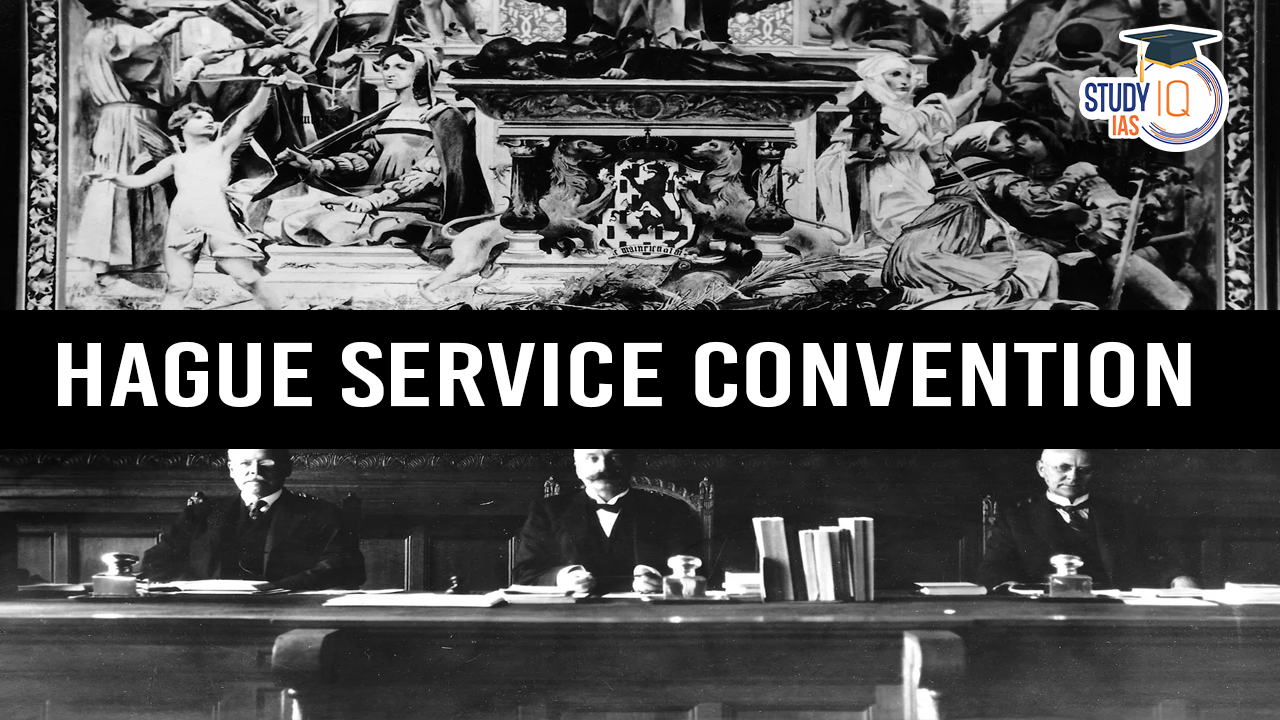Table of Contents
Context: The U.S. Securities and Exchange Commission (SEC) has sought assistance from the Indian government under the Hague Service Convention to serve summons on Gautam Adani in a securities and wire fraud case.
About Hague Service Convention (1965)
- It is a legal treaty signed by 84 countries, including India and U.S.A.
- It is formally known as the Convention on the Service Abroad of Judicial and Extrajudicial Documents in Civil or Commercial Matters.
- The treaty ensures that people in one country can be served legal documents properly when they are involved in court cases in another country.
- The main goal is to ensure that people receive timely and fair notice of legal proceedings against them.
How does it Work?
- Each country in the treaty appoints a central authority to handle legal document requests.
- The country requesting legal service must follow the rules of the receiving country.
- Legal documents can be sent through designated authorities, postal services, diplomatic channels, or other approved methods.
India’s Stand on the Hague Convention
- India joined the Hague Service Convention in 2006 but has placed restrictions on how legal notices can be served.
- India does not allow alternative methods like postal service or direct communication between lawyers or courts (which some countries permit).
- All legal notices from foreign countries must go through the Ministry of Law and Justice.
- India can reject requests if they threaten its sovereignty or security.
How Does it Work in India?
- The Ministry of Law and Justice receives the legal documents from the foreign country.
- If there are no objections, it forwards them to Indian authorities to serve the person.
- The process takes 6 to 8 months. If India rejects the request, it must provide a valid reason.
What Happens if India Does Not Cooperate? (Default Judgment)
- A default judgment is when a court issues a decision against someone who does not respond to legal proceedings.
- Under the Hague Convention, if a country fails to serve legal documents properly, the foreign court can still proceed with the case.
Conditions for a Default Judgment
- The legal documents must have been sent using proper methods under the treaty.
- At least six months should have passed after sending the documents.
- The country (India, in this case) must have failed to provide proof that the notice was served.


 German Chancellor Visit to India in 2026...
German Chancellor Visit to India in 2026...
 Iran Nuclear Crisis and India’s Role f...
Iran Nuclear Crisis and India’s Role f...
 H1B Visa Program, Beneficiaries, Eligibi...
H1B Visa Program, Beneficiaries, Eligibi...

























